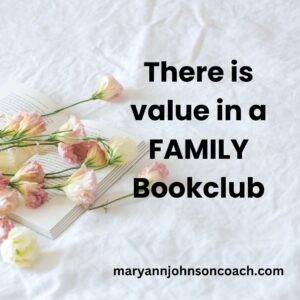 On March 3, 2024, I published an article titled Are You Afraid to Read Hard Books? While preparing today’s article I reread it and thought, “How did you write this.” Go ahead and laugh. It happens all the time. But when you feel passionate about something, thoughts and words come. It is an amazing thing.
On March 3, 2024, I published an article titled Are You Afraid to Read Hard Books? While preparing today’s article I reread it and thought, “How did you write this.” Go ahead and laugh. It happens all the time. But when you feel passionate about something, thoughts and words come. It is an amazing thing.
This is one reason I encourage people to journal. I have reread things in my journal that blew my mind. Not only because they may have been well written, but the things that have happened in my life have been astonishing, when looked at later. But I digress. LOL
After that article was published, I got a wonderful email from one of my readers, who is also a dear friend. We have counseled together in the past and I appreciate her so much.
I get emails regularly telling me how good an article was or how helpful it was to the reader. This email contained some of that. What struck me though was another thing that happens now and then. Someone takes what I have written, and they build upon it! This is massively motivating for me.
I asked Joy if I could share her thoughts with you because what she has done with family reading is magnificent. I think that some of you will want to follow suit, in some fashion.
I have written several articles on the value of family reading. I read to my children, but I lacked consistency back then. Nevertheless, one of my adult daughters said one of her fondest memories was of me reading to our family.
What I love about Joy’s take on family reading, it encourages everyone to read, not just listen.
Here is her email:
Mary Ann, thanks for emphasizing the importance and power of communicating with others about what you’re reading. We discuss this all the time in Leadership Education circles–the importance of discussion and good mentoring for great literature, like the kind you were talking about. This is demonstrated in your examples of how discussing those books with other people changed your experience.
Another great way to gain more from what we read is to process it through writing. (You demonstrate this principle very well too!) As you mentioned, we can write notes and underline in our books, but we can also journal and write essays or blog posts that we can share with others. It’s another way of processing and internalizing the principles and lessons we learn in the books we read. This tool applies to reading scriptures as well. When we process and record our thoughts, questions, and insights through writing, we learn more and internalize and remember it better!
Audrey Rindlisbacher has a great podcast about the power of book clubs, or discussion groups, like the one Benjamin Franklin organized. I shared it with my grown children, and it inspired many of them to join me in starting an online family book club where we discuss a book about once a month. Our first book was the Screwtape Letters, and our discussion was great and I’m excited to see how well we can keep it up. I can’t think of many things better than discussing great books with my family! Joy Petty
It never occurred to me to have a family book club. I mean, that is an outstanding idea. At first, I thought, “Oh man, our family would never do that.” Then I chastised myself for jumping to that conclusion and reached out to my children to see if there was any interest. I probably won’t have many responses before this article is published, but we will see.
Maybe you, like me, dismiss the whole idea. But don’t. If you have teens or grown children, ask them if they would like to read a book individually or as a family and discuss it. At the very least begin reading together, even if you do the reading.
Depending on the ages of your children, you can read to them or each person in your family can take a turn reading. At the end of each session ask for input. I didn’t do that, and I know now that it would have made the reading I did with my children even more powerful.
If you have older teens and adult children why not explore the option of a family book club? Who knows, it may be a big hit. Even if it only lasts through one or two books, and that could happen, the whole experience will bond you even more as a family.
And by the way, when you read and study yourself, you will be a powerful example for your family. It will have an impact. If not now, then in the future.
Now for the postscript:
After I asked Joy if I could share this email and she consented, we talked some more. I replied to Joy and shared my concerns about a book club and why I read to my husband and Mom rather than us all reading.
“This was so awesome. Can I share it in a newsletter? Great thoughts and I love that you have begun a family book club. I wish that were possible in my family. Lots of kids who do not read, mostly boys and my husband. I read to him, but it can’t be too deep, or he sleeps. LOL Anyway, I would love to share your thoughts.”
Joy replied with this, and it was so heartening. I suspect that is one reason I contacted my family to see what they think. : )
“I have several kids who don’t (or won’t) read either :-). We’re encouraging them to listen to the audiobook so they can participate. The book club is totally voluntary, and fewer than half of my 10 kids participated in our first discussion, but that’s okay. It’s a start, right? :-)”
Joy is correct, it is a start. Even if it doesn’t last for months or years, it will bless her family. If we make the effort to read in our family, in some fashion, it will bless our families too. I have seen this happen in my choppy, inconsistent past in my family.


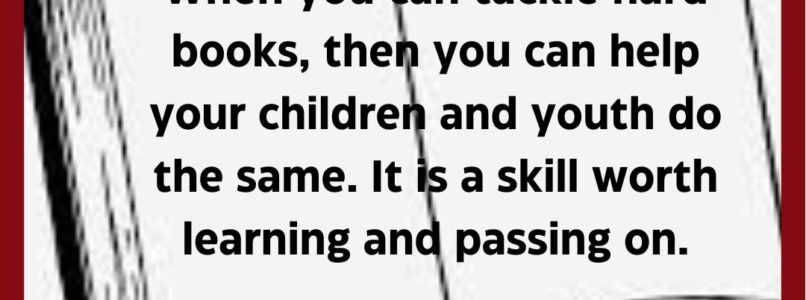
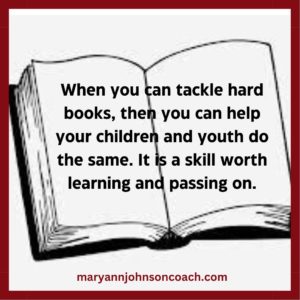 Have you ever wondered how to read books that aren’t easy reads? This has been an issue for me. I LOVE reading but sometimes the classics are a challenge. History can be dry. Some books deal with tough topics. How do you manage those?
Have you ever wondered how to read books that aren’t easy reads? This has been an issue for me. I LOVE reading but sometimes the classics are a challenge. History can be dry. Some books deal with tough topics. How do you manage those?
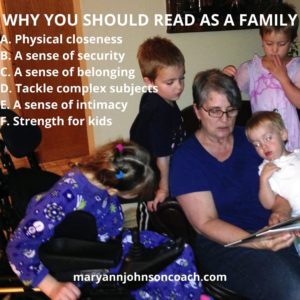 I am a
I am a 
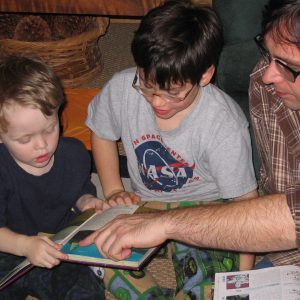 March 4th was the birthday of Dr. Seuss.
March 4th was the birthday of Dr. Seuss.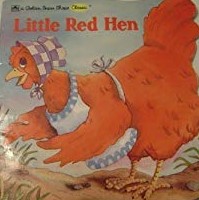 One classic that my children loved was The Little Red Hen. Yup, it’s a classic. I know that we think of classics as dry and boring, but they aren’t. Here’s a link to a wonderful list of classic books I put together that kids and families will love.
One classic that my children loved was The Little Red Hen. Yup, it’s a classic. I know that we think of classics as dry and boring, but they aren’t. Here’s a link to a wonderful list of classic books I put together that kids and families will love.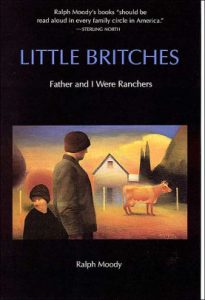 which he knew he shouldn’t share, and which caused his older brother some embarrassment. Later in a private moment, the younger boy said to his mom, “I guess I have taken some of the boards off of my house”, in reference to a comment by Ralph, the lead character in the book. Ralph was referring to doing something that was destroying his house of character.
which he knew he shouldn’t share, and which caused his older brother some embarrassment. Later in a private moment, the younger boy said to his mom, “I guess I have taken some of the boards off of my house”, in reference to a comment by Ralph, the lead character in the book. Ralph was referring to doing something that was destroying his house of character.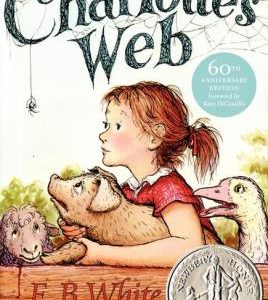
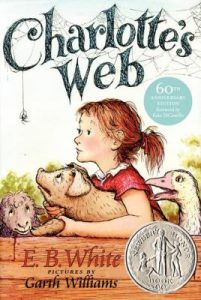 Jodie was reading the book Charlott’s Web to her children. Frequently she would stop and ask a question. “What does manure mean?” “What does loft mean?” What does slop mean”? “What is a manure pile?” When the term manure pile came up again, later in the story, Jodie emphasized the term as she read. Then she asked, “Do you remember what manure pile means?” I heard, “Eweee, a pile of poop.” Then laughter.
Jodie was reading the book Charlott’s Web to her children. Frequently she would stop and ask a question. “What does manure mean?” “What does loft mean?” What does slop mean”? “What is a manure pile?” When the term manure pile came up again, later in the story, Jodie emphasized the term as she read. Then she asked, “Do you remember what manure pile means?” I heard, “Eweee, a pile of poop.” Then laughter.